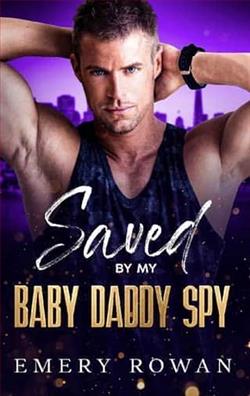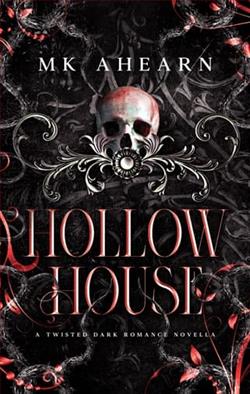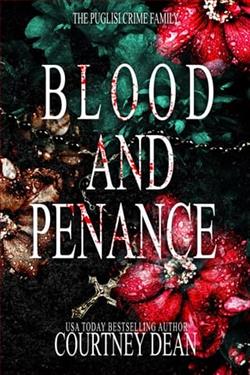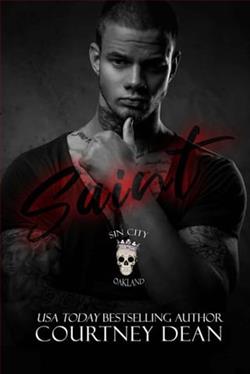Page 41 of Tempest Unleashed (Tempest 2)
But in the end, he shook his head. “They don’t know. They can’t figure out why he wasn’t brain-dead when Mark and Logan pulled him out of the water, and they still don’t know why he didn’t die on that beach. And it’s not exactly like I can tell them it’s because he’s half mermaid, can I? They say his chances of waking up are only about fifty percent, but I don’t believe that. Your mother went through worse and survived …” His voice trailed off and I knew he was lost in remembering.
I thought of my mother’s cave, of the memory of how my parents met. She had survived worse, but, “Dad, Mom was completely mermaid. Moku doesn’t even have gills yet.”
“He survived somehow, Tempest. And I won’t believe that he made it through all that just to …” His voice trailed off. “No. He’s going to be okay.”
“Of course he is.” I said it forcefully, surely, because I wanted to believe it as much as my father did. Getting up, I poured myself some coffee, then brought it to my nose and just breathed it in. In the ocean, I drank a lot of different types of sea vegetable tea, even told myself I enjoyed them, but as I stood here with a cup of coffee in my hands, I realized it wasn’t close to being the same.
No matter how much I wanted it to be.
“So, can I make you some pancakes?” My dad walked to the fridge, opened it. “We still have over two and a half hours before they’ll let us into the CCU.”
“I’m not that hungry.”
“It seems that every time I see you you’re telling me that.” He started to mix the batter up. “I can’t do much to take care of you these days—let me do this, okay?” There was a lot more tension in his voice than the question warranted.
One more sign that Rio and I weren’t the only ones having a hard time with this situation. “Do you have blueberries?” I asked.
He smiled at me, the first genuine one I’d seen from him since I’d gotten home. “I do indeed.”
We worked together in companionable silence, almost like I’d never left. I made pineapple-mango smoothies while my dad flipped blueberry pancakes, and within fifteen minutes we were seated at the table, shuffling food around our plates and pretending to eat. At least the smoothies seemed to go down okay.
“So,” he said again, after he gave up faking and pushed his plate away. “This boy upstairs.”
“Kona?” I froze, a deer in headlights, with my smoothie halfway to my mouth.
“Yeah. Kona.” He said the name like he was trying to find hidden nuances to it. “Is it serious between you two?”
“I, uh, well. We, umm …”
He laughed. “I guess that answers that question. Does he treat you well, darlin’?”
“Dad!” I ducked my head. “Do we really have to do this now?”
“Yes. We really do. I don’t know how long you’re going to be here. I sure as hell don’t know when you’re going to be back again once you leave. I need to make sure you’re taken care of.”
“I can take care of myself.”
He sighed. “I didn’t mean to insult your feminist sensibilities, Tempest. It’s just that you’re still new to life down there and I want to make sure you’ve got everything you deserve.”
“Well, that sounds ominous,” I tried to joke.
“You know what I mean. I want to make sure you have good friends and that they care about you.”
“Kona loves me, Dad. He does too much for me, to be honest.”
“That’s good.” My dad nodded. “That’s exactly what I want to hear.”
“I bet.” I rolled my eyes, then didn’t even try to pretend I wasn’t changing the subject. “Is Rio coming with us to the hospital?”
“Let him sleep. He’s not taking this whole thing very well.”
“It doesn’t seem like he’s taking anything very well,” I said, bringing up the subject that had been bothering me since I’d first seen my brother last night.
My dad wouldn’t meet my eyes. “Give him time. He’ll adjust.”
“He’s had eight months.”
“And already he’s a lot better than he was when you first left.”
I turned stricken eyes to him and he cursed. “Don’t look like that. I was trying to explain that he’s getting back to normal.”
“Yeah, right. Normal is the first thing I think of when I look at that Mohawk on the top of his head. I barely recognized him.” I stacked the plates in the dishwasher. Then, without turning around, said, “I’m really sorry, Dad.”
“We’re not going to go through this again, Tempest. I love you and I’m so proud of you for making the decision that was right for you. That’s the only thing I’ve ever really wanted. As long as you’re staying true to who you are and what you want out of life, I’ll always be behind you.” He rubbed a comforting hand down my back, then glanced at the wall behind the table.
“Hey, what happened to the mirror that was hanging there?”
I froze. “The mirror?”
“Yeah, you know the one. Big. Rectangular. Ocean-type frame? It’s been hanging there for ten years, Tempest.”
“Oh yeah. It kind of broke last night.”
“Broke?” His eyes narrowed. “That thing survived three children and four earthquakes. How the hell did it break?”
“Ummm, it kind of, fell off the wall?”
He cocked his head to the side. “Do I even want to know?”
“Probably not.”
“All right, then. Give me fifteen minutes to shower and dress and we’ll head out. We can beat the traffic,” he told me with a wink as the clock rang out six times.
I fought the urge to run down the hall and smash it into bits. I hated that damn clock and everything it stood for. My mother had insisting on buying it about a year before she took off, and no matter how many times I’d pleaded with him to get rid of it, my dad had refused to listen. He’d kept it for years, just in case she returned.
Which was why I made no move to destroy it. It was one of the last things my father had from my mom and he took spectacular care of it—even if he now knew that she was never coming back.
I watched my dad head upstairs, then left a note for Kona and Rio telling them where we were going. When that was done, I settled down to wait for my dad. Sketching aimlessly on a piece of scrap paper, I worried about what my dad had said, poking at the words over and over again, even when I knew I should give it a rest. Like a little kid with a loose tooth, I just couldn’t leave them alone.
I needed to live the life that was right for me, he’d said. Which sounded good in theory, until you realized that the more time I spent underwater, the less sure I became about which life I really wanted.
Glancing down at what I had drawn, I nearly winced.
Surfboards. Row after row of surfboards. Of course. They were a part of both worlds, spending most of their time on land but only serving their purpose when in the water.
Was that me? I wondered. Or was I looking at the first art I’d done in eight months and seeing only what I was most afraid of?
By the time my father rolled back into the kitchen, dressed in jeans and a T-shirt from his surfing company, I still hadn’t found the answer.















